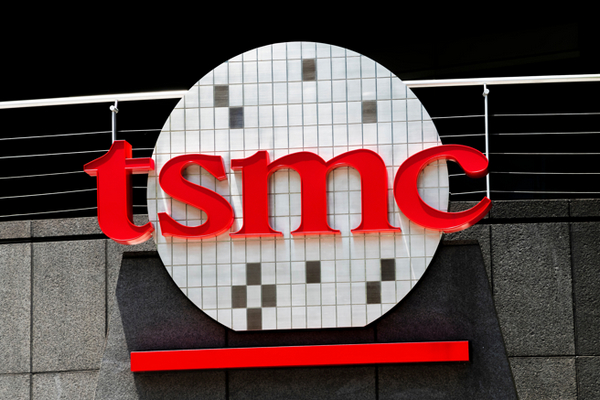
According to Forbes magazine, the world's largest semiconductor manufacturing giant - Taiwan Integrated Circuit Manufacturing Co., LTD. (TSMC, the industry referred to as TSMC), is facing a high-profile lawsuit recently. The lawsuit, filed by dozens of former and current TSMC employees, accuses the company of alleged "anti-American" discrimination, casting a shadow over TSMC's glorious journey in the global semiconductor market.
TSMC, the semiconductor manufacturing giant headquartered in Hsinchu, Taiwan, China, with its excellent technical strength and efficient manufacturing capabilities, has won the favor of many technology giants around the world, including well-known companies such as Apple and Nvidia. In recent years, with the booming development of artificial intelligence technology, TSMC's business volume has shown explosive growth, and in the last quarter alone, the company achieved a profit of up to $10 billion, further consolidating its leading position in the global semiconductor manufacturing industry.
However, just as TSMC's business is booming, a sudden lawsuit has pushed it to the forefront. In 2023, TSMC's expansion plans in Phoenix, Arizona, USA, are in full swing. Back in 2020, the company announced a massive $65 billion plan to move three semiconductor plants to Phoenix and promised to create thousands of high-tech jobs in the United States. The project was strongly supported by the Biden administration and successfully secured $6.6 billion in federal Chip Act funding and $5 billion in loans. At present, TSMC has completed the trial production stage at a factory in Phoenix, and plans to formally put the chip into production early next year.
However, just when TSMC's expansion plans in the United States seemed to be going well, it encountered the controversy of "relying on Taiwanese workers." Last year, more than half of TSMC's 2,200 employees in Arizona were reported to be from China's Taiwan region. Chang, TSMC's founder, has said publicly that this dependence is mainly due to a lack of manufacturing talent in the United States. However, this statement did not quell the outside world's doubts and criticism.
The lawsuit was brought by dozens of employees, including current TSMC human resources executive Deborah Howington, who allege that the company has an illegal and discriminatory culture of favoring Taiwanese candidates and employees. Deborah Howington, a member of TSMC's human resources leadership team, claims she has witnessed this discriminatory practice flourish within the company. According to her, TSMC's HR team in Taiwan carefully selects candidates who are willing to work in the United States and sends their resumes directly to the US office. The US team often hires these candidates directly from Asia or Taiwan in the recruitment process, with few substantive interviews or assessments.
The lawsuit also details discrimination within TSMC. For example, there is a widespread preference within the company for employees who can speak and write Mandarin. According to the plaintiffs, TSMC's meetings and business materials were often communicated only in Mandarin, which not only prevented English-speaking employees from doing their jobs, but also forced them to rely on translation services to understand teaching materials and meeting content. This linguistic discrimination not only affects the work efficiency and career development of employees, but also aggravates the cultural estrangement and contradiction within the company.
What's more, when U.S. employees are required to travel to Taiwan for training, they often face more serious challenges. According to one of the plaintiffs, she was encouraged by a TSMC manager during her training to learn Mandarin on Duolingo, a language-learning program. Such mandatory language learning requirements not only make employees feel stressed and uncomfortable, but also further fuel their anger and dissatisfaction with the company's discriminatory practices.
In addition, there is a shocking incident mentioned in the lawsuit. A TSMC executive allegedly admitted in an all-hands meeting last year that the company was suspected of using "Chinglish" to hide information from employees who did not speak Mandarin. This behavior not only seriously violated the company's professional ethics and laws and regulations, but also greatly damaged the trust and loyalty of employees.
In the face of the sudden lawsuit, TSMC has yet to file any rebuttal and declined to comment on ongoing litigation. However, the lawsuit has undoubtedly caused immeasurable damage to TSMC's brand image and reputation. In the coming days, TSMC will have to face widespread doubts and criticism from employees, customers and the public in an effort to restore its damaged image and credibility.
At the same time, the lawsuit has also triggered in-depth thinking about the flow of talent and cultural integration in the global semiconductor industry. In today's deepening globalization, how to balance the introduction and use of local talents and foreign talents, how to promote the exchange and integration between different cultures, how to build a fair, just and inclusive working environment and other issues need to be solved. For TSMC, this is not only a legal contest, but also a profound reflection and reshaping of corporate culture and values.

On October 26th local time, Tesla's CEO Elon Musk announced at the earnings call that he has finally set a clear production schedule for Cybercab.
On October 26th local time, Tesla's CEO Elon Musk announced…
When the US National Nuclear Security Agency fell into an "…
On November 3, 2025, Peru suddenly announced its diplomatic…
Scientists from the RIKEN Center for Quantum Computing in J…
On the grand chessboard of global agricultural product trad…
In November 2025, the economies of the United States and Eu…